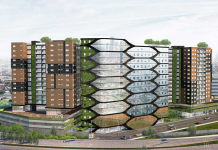
The second quarter of 2016 ended with unprecedented financial markets upheaval following the decision by the United Kingdom to withdraw from the European Union.
In its latest Asia Regional Snapshot report, real estate firm Colliers said the uncertain future of the U.K., along with Europe, is expected to weigh down the already fragile global economic environment in the coming months (if not years).
Market watchers anticipate that capital “flight to safety” flows will expedite over time to seek out safer havens in non-UK and possibly non-European investments. As a result, Asian markets and its real estate sector are widely tipped to be one of the main beneficiaries of “Brexit”, according to Terence Tang, Managing Director for Capital Markets & Investment Services for Colliers in Asia.
In the Philippines, Leyo De Guzman noted that the economy grew rapidly by 6.9 percent during the first quarter of 2016, primarily driven by increased investments and household expenditures, as well as a rise on public infrastructure spending.
The retail property sector is on an expansion mode, backed by steadily improving purchasing power and consumer confidence. The retail growth, which propelled increased manufacturing activities and requirement for warehouses and distribution centers, has in turn drove up the industrial space demands. New industrial locators’ space requirement was the other market driver for this sector.
The hospitality sector continues to be buoyant with an increase in foreign tourist arrival number which has surpassed the monthly average target of 500,000.
The positive Philippines property growth story is forecasted to sustain in the next few quarters. Major property developers are continuing their trend of township development outside the Metro Manila, a move to de-centralise and create more investment opportunities beyond the major central business districts.
A resurgence of interest from foreign property developers and property fund investors, particularly from Japan, Hong Kong and Singapore, is expected in view of the country’s progressive economic landscape, continuing rise of the middle-income class, young population and continuing sub-urbanization.




















